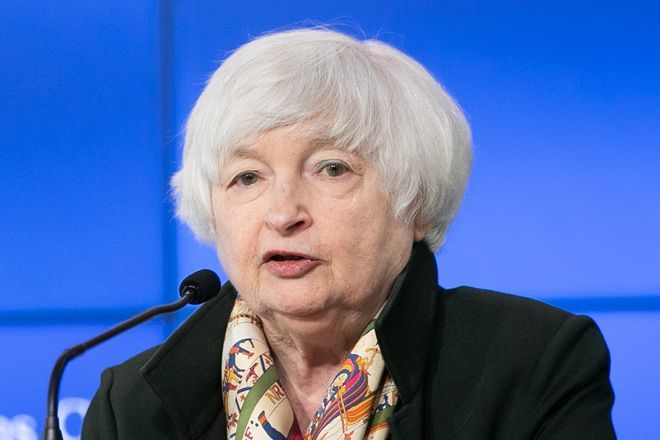
WASHINGTON–The U.S. Department of the Treasury on Friday said it found that no major U.S. trading partners had manipulated their currencies for an export advantage, adding it ended “enhanced analysis” for Switzerland after the country met only one of three manipulation criteria.
In its semi-annual currency report, the Treasury said that Switzerland remains on a “monitoring list” for close attention to foreign exchange and economic policies, along with six other trading partners: China, Taiwan, South Korea, Germany, Malaysia, Singapore.
Japan was dropped from the monitoring list because it only met one of the three criteria for two monitoring periods in a row. Japan, which had previously intervened to hold down the yen’s value, last October intervened in the currency market to keep the yen from falling against the dollar.
The report covers foreign exchange activity for the four quarters ended Dec. 31, 2022: a period of extraordinary dollar strength that prompted many countries to intervene to keep their currencies from falling in a bid to tame inflation.
Under the laws governing the report, the Treasury is only concerned with deliberate weakening of currencies for a trade advantage.
“Most foreign exchange intervention by U.S. trading partners last year was in the form of selling dollars, actions that served to strengthen their currencies,” U.S. Treasury Secretary Janet Yellen said in a statement.
“However, Treasury remains vigilant to countries’ currency practices and policy settings and their consistency with strong sustainable and balanced global growth,” Yellen said.
In its previous report in November 2022, the Treasury had found that Switzerland had exceeded all three thresholds for possible manipulation, but refrained from branding it as a manipulator.
But in the latest report, Switzerland no longer exceeded the thresholds for persistent foreign exchange purchases and a trade surplus with the U.S. of more than $15 billion, and the Treasury ended “enhanced analysis” of Switzerland’s practices.
However, a U.S. Treasury official said that the department has concerns about Switzerland’s global current account surplus of 10.1% of GDP — far exceeding its 3% threshold. The official said the Treasury would discuss policy options with their Swiss counterparts to bring the surplus down.
The report had little impact on foreign exchange trading markets, with the dollar holding slight gains against the Swiss franc after it was released.
SINGAPORE AN OUTLIER
Most countries on the monitoring list met two of the three criteria in the past two reports, mainly high trade surpluses and high current account surpluses. But where most countries sold dollars, Treasury said Singapore was an outlier on intervention, making net foreign currency purchases of $73 billion in 2022, or about 15.6% of GDP — well above the 2% threshold.
The Treasury said China was kept on the monitoring list due to its $400 billion trade surplus with the U.S. and a continued lack of transparency in its foreign exchange dealings and failure to publish currency intervention data. However, the Treasury official said the department did not believe that China was intervening extensively to weaken the yuan last year.




